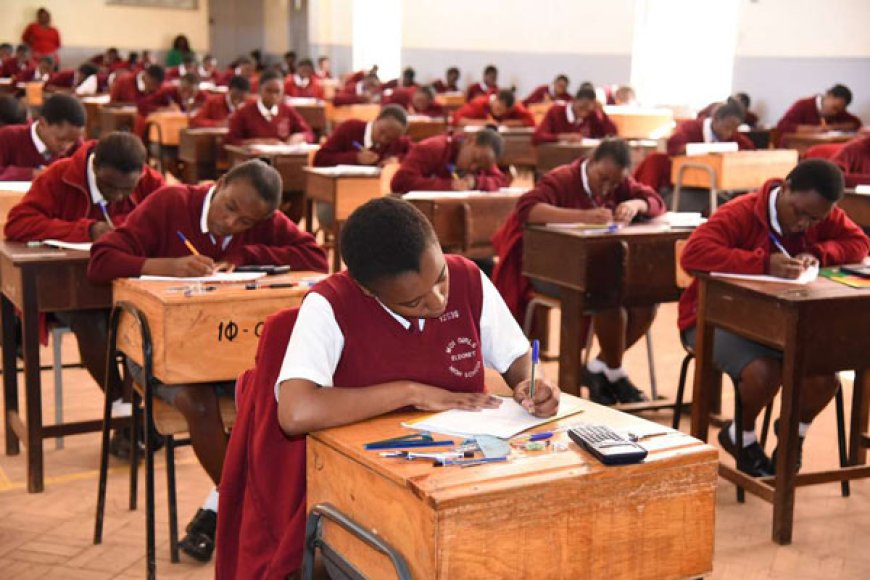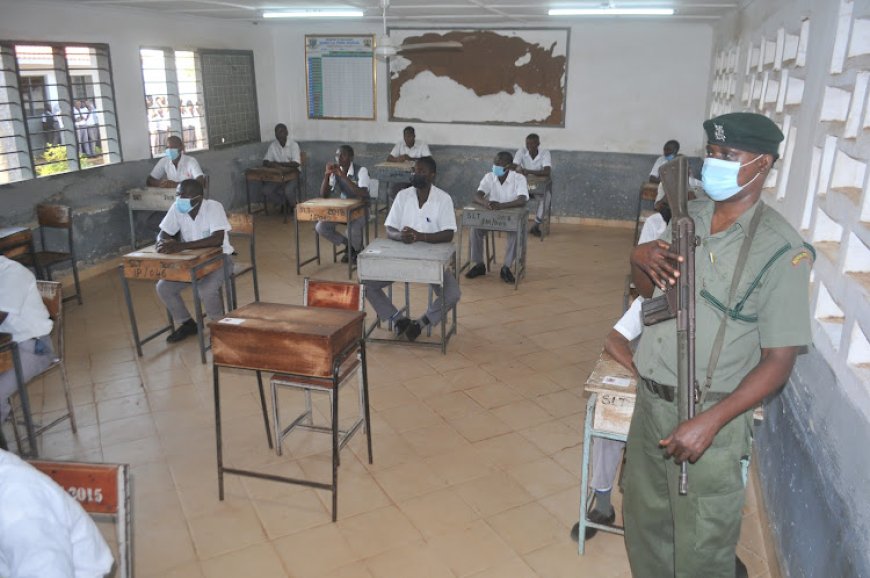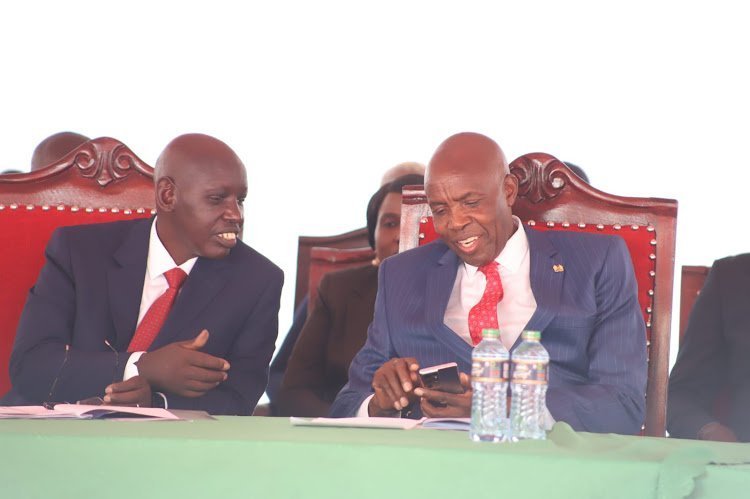Govt To Stop Deploying Cops To National Exams
The new directive, which he gave every indication that it would be enforced during this year's national examinations, would create a less intimidating environment for students undertaking national exams.

The Ministry of Education is set to stop deploying police officers from manning national examinations as has been the norm over the years.
Speaking during the Annual Kenya National Examination Council (KNEC) Symposium on Competency-Based Assessment (CBA) held at the College of Insurance in South C, Nairobi County, Basic Education Principal Secretary Belio Kipsang hinted at the government's directive, adding that this would allow young learners to perform as themselves and deliver to the best of their capability during the assessments.
He added that the new directive, which he gave every indication that it would be enforced during this year's national examinations, would create a less intimidating environment for students undertaking national exams.
“This is the most opportune time to change how we administer assessments. I'll be very surprised to see police officers in assessment rooms this year. It's time to let our children be children,” Kipsang stated.

A police officer stands guard before the start of the KCSE at Shimo La Tewa High School in Mombasa. /THE STAR
The presence of police officers in examination rooms has been a longstanding practice, intended to prevent disruptions and ensure the security of the exam process.
However, there has been growing concern that their presence might cause anxiety among students, which could hinder their performance.
This move comes after a previous adjustment in 2021, where the government barred police officers from handling examination papers, specifying that only invigilators and supervisors should manage these documents.
During the same symposium, Kipsang announced that the government was doing away with the national categorisation of schools as part of plans to implement the new curriculum.
Under the now-being-phased-out 8-4-4 system, secondary schools are categorised as national, extra-county, county and sub-county.
“We will soon convene a stakeholders engagement on the pathways and pathway placement in Senior School. Secondary schools will soon be categorised according to the pathways they will offer,” Kipsang addressed.
Secondary schools will now be renamed as senior schools and it is where pupils from Junior Secondary Schools (JSS) will enrol.
In the new categorisation, senior schools will now be identified on the combination of subjects offered in the institution. This includes; Science, Technology, Engineering and Mathematics (STEM) Centres, Humanities and Arts Schools, and Creative Arts and Sports Schools.
The classification will largely depend on the resources and infrastructural capacity of the academic institution. As most national schools possess ample resources such as libraries, laboratories, and social amenities, they are anticipated to provide a combination of the three streams.
However, sub-county schools, constrained by limited resources, are likely to offer only one combination of subjects.
Students will now undergo a three-year duration in senior school before advancing to university or college, based on their interests and academic achievements.







